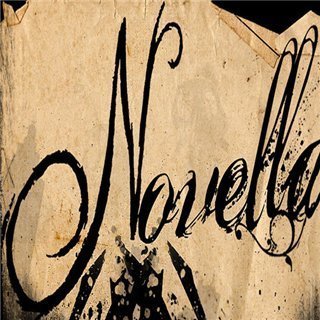Girth vs Length: The Novella
 In a recent discussion, @AislingWeaver recently brought up the issue of length when it comes to publishing. Not too long ago, Taylor Antrim wrote a very good article on the novella. And just last month, Joe Fassler wrote an article on the novella’s recent resurgence for the Atlantic.
In a recent discussion, @AislingWeaver recently brought up the issue of length when it comes to publishing. Not too long ago, Taylor Antrim wrote a very good article on the novella. And just last month, Joe Fassler wrote an article on the novella’s recent resurgence for the Atlantic.
There’s a notable literary gulf between the 10,000 max word short story (very few anthologies will accept anything more than about 5,000 words) and a 60,000 word novel (the minimum word count for a novel, for most publishers). Are there not stories that require more than 10K and less that 60K?
The obsession with the word-count and, therefore, the page count, has been a significant reason why the novella has, until recently, been seen as an anachronistic and literarily unimportant form. You still see very few literary reviews on novella length works. And yet some of the most magnificent works of the late 19th and 20th Century have been novellas. Joseph Conrad’s Heart of Darkness. George Orwell’s Animal Farm. Jacob’s Room by Virginia Woolf. The Dead, by James Joyce. Almost all of the most celebrated writers of the 20th century have written novellas. But…commerce has gotten in the way. How do you price one? In print, a novella costs almost as much to print as a novel, and yet you can’t charge the same amount of money. Readers will balk when they’re asked to pay the same for a 30 page novella as a 120 page novel.
Happily, the advent of the ebook has put an end to that particular issue. The novella is a wonderful length for an ereader. And many of the small ePresses, especially in the erotica genre, are producing them.
But what makes a novella a different beast is more than just its length. Novellas seldom have more than a single narrative voice. They seldom switch POVs. They tend to follow one set of characters down one, very deep, rabbit hole. A novella offers the writer the opportunity to truly delve into a character. It affords them time to be lushly descriptive of setting and atmosphere. It allows for depth and complexity in plot with no dilution.
For me, the novella is the perfect experiential journey length for a single main character. I don’t need to tack on side-plots to bulk out a story. I don’t need to reveal multiple points of view and dilute the reader’s experience of immersing in a very close, interior relationship with the main character. It allows me to luxuriate in the subjective experience.
I think the novella is an exceptional form for erotic fiction. I’ve often read erotic fiction short stories that simply don’t offer enough depth of character to make the sex in the story really contextual. And similarly, I’ve read many erotic fiction novels where, frankly, I felt that scenes just went on too long, or spurious conflicts were dropped in to bulk out the story into novel length. Sometimes, they just needed a bloody stern editor.
What do you think of the novella? Have you written one? What’s your favourite one?





